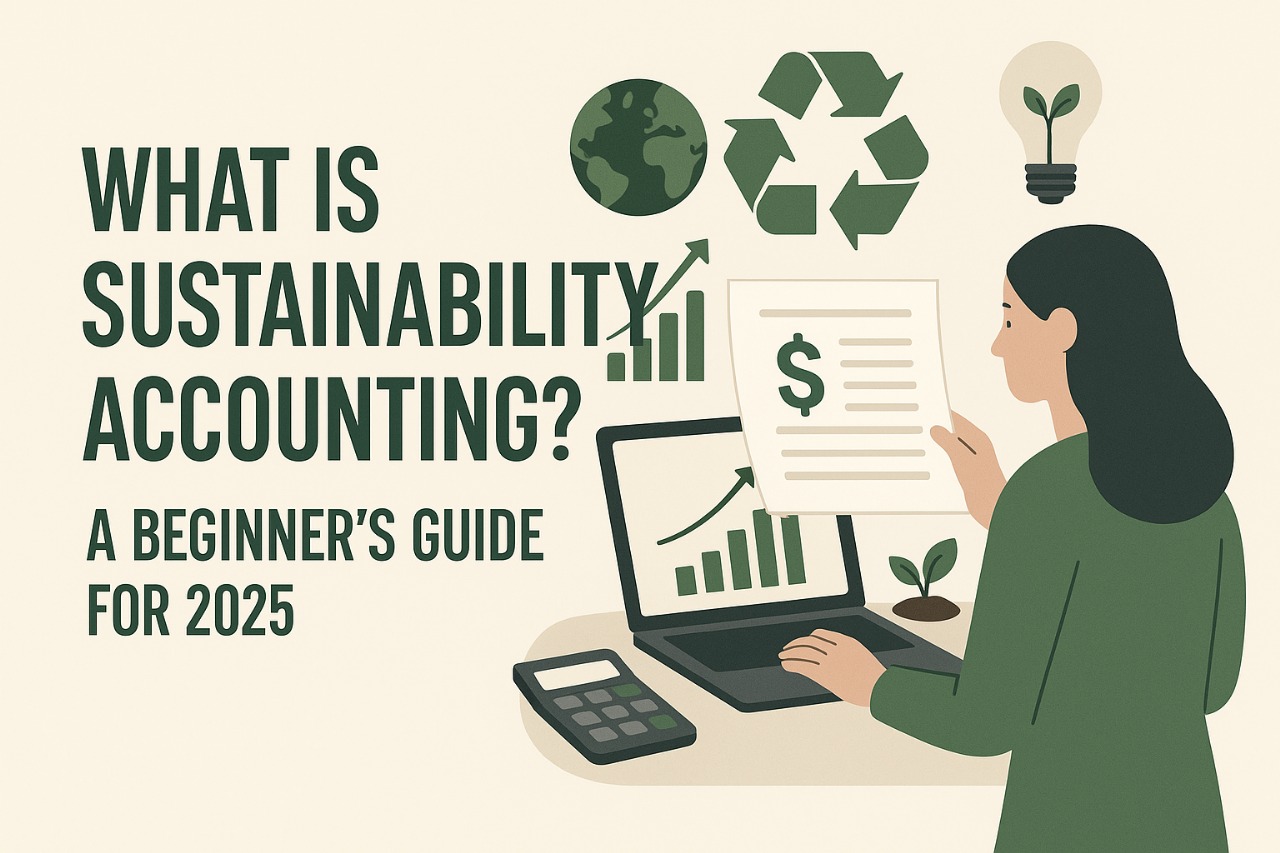Overview: Why Sustainability Accounting Matters
Sustainability accounting refers to integrating financial and non-financial data especially environmental, social, and governance (ESG) metrics into a company’s overall performance assessment. As investors, regulators, and consumers prioritize sustainable practices, transparency through sustainability reporting is no longer optional. In 2025, frameworks like SASB standards and the EU’s CSRD push businesses toward rigorous ESG disclosures and green accounting in India is gaining traction too.
Key Frameworks & Regulations
SASB Standards
The SASB standards provide industry-specific guidelines to quantify sustainability performance, making data relevant and comparable. These are central to many ESG-reporting frameworks, and our FSA course delves into how to apply them effectively.
CSRD (Corporate Sustainability Reporting Directive)
The CSRD came into effect across Europe in 2024–25, raising the bar for corporate sustainability reporting with mandatory disclosures. Its ripple effect is felt globally, including through supply chains and multinationals with Indian operations.
ISSB & Other Frameworks
The International Sustainability Standards Board (ISSB) is aligning global standards. Understanding how ISSB complements SASB and CSRD is key to mastering sustainability accounting fundamentals.
Carbon Accounting & ESG Metrics
Carbon accounting is a pivotal subset of sustainability accounting. It involves measuring Scope 1, 2 & 3 emissions to understand a company’s carbon footprint—critical for managing climate risk and creating sustainability reports that resonate with stakeholders. This ties directly into robust ESG reporting strategies.
How to Start: Fundamentals of Sustainability Accounting
- Identify Relevant ESG Metrics – Choose KPIs (e.g., emissions, water usage, diversity) aligned with your industry.
- Select the Right Frameworks – Blend ESG reporting frameworks like SASB, CSRD, and ISSB for credibility.
- Track & Measure – Use carbon accounting tools and sustainability dashboards.
- Report Transparently – Create external disclosures, aligning with CSRD, SASB, and global standards.
- Review & Improve – Compare year-on-year performance and integrate findings into business strategy.
This process aligns with the fundamentals of sustainability accounting and forms the core of our upcoming FSA certification.
In Green Accounting in India: Local Case Example
India’s emphasis on green accounting has grown rapidly. Companies like Tata Steel and Infosys are publishing ESG reports that integrate sustainability accounting systems. For example, Tata’s carbon accounting includes full Scope 3 disclosures, and Infosys promotes sustainability reporting by linking ESG goals to executive compensation.
Benefits of Sustainability Accounting
- Regulatory Preparedness: Equip your business for CSRD, ISSB, and global standards.
- Investor Confidence: High-quality ESG reporting attracts capital from institutional investors.
- Risk Management: Carbon accounting helps businesses mitigate climate-related and operational risks.
- Competitive Advantage: Stand out with transparent sustainability practices and ethical operations.
Dive Deeper with the FSA Course
Ready to go beyond the basics? Fundamentals of Sustainability Accounting (FSA) covers:
- ESG metric selection & alignment
- SASB and ISSB standards deep dive
- CSRD compliance workflows
- Hands-on carbon accounting exercises
- Real-world case studies, including green accounting in India
Dive deeper, enroll in our FSA certification today!
FAQ
Q: What’s the difference between ESG reporting and sustainability accounting?
A: ESG reporting is the output of public disclosures on environmental, social, and governance performance. Sustainability accounting is the methodology used to collect, measure, and validate ESG data.
Q: Does CSRD apply to Indian companies?
A: Directly, no, but corporations with EU operations or global supply chain exposure must comply, making CSRD relevant for Indian businesses too.
Q: How does carbon accounting tie into financial reporting?
A: While carbon is non-financial, emissions data is increasingly factored into risk assessments, cost projections, and investor valuation models bridging the gap into traditional financial accounting.

